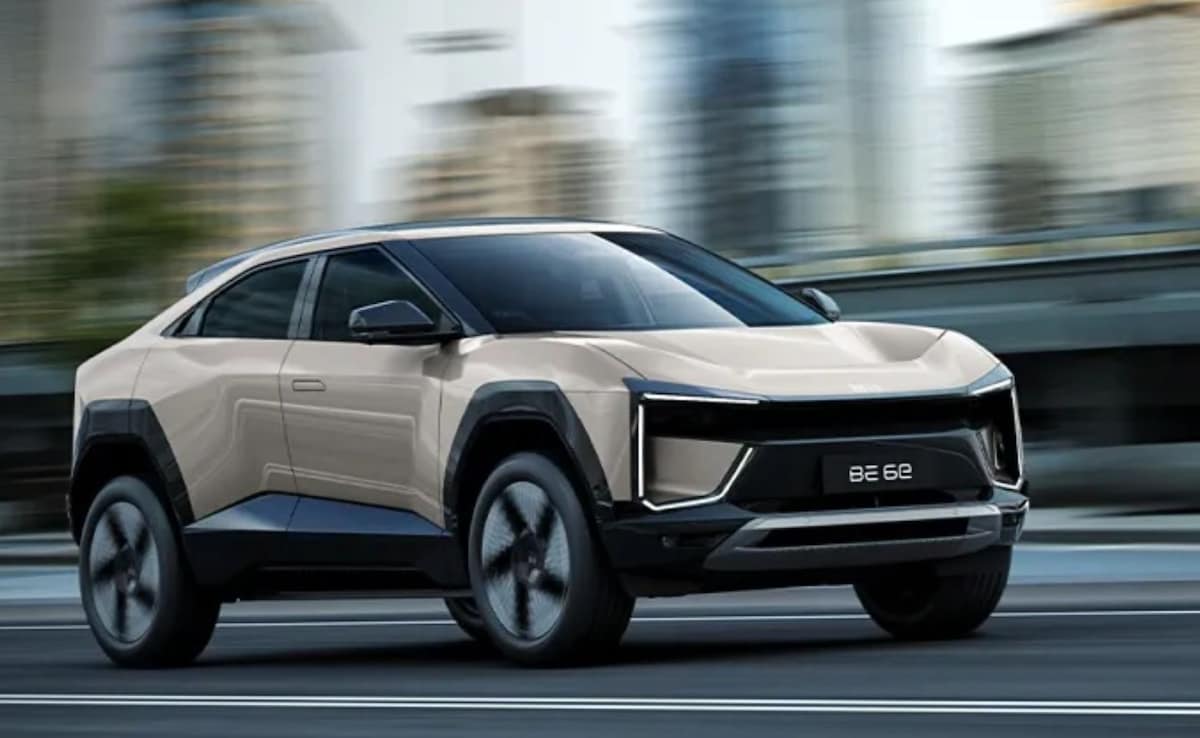In a legal clash that’s capturing the attention of both the aviation and automobile industries, InterGlobe Aviation Ltd, the parent company of India’s largest airline IndiGo, is suing Mahindra Electric Automobile Ltd for allegedly infringing on its trademark. The issue revolves around the use of the term ‘6E’ by Mahindra for its upcoming electric vehicle, the BE 6e. IndiGo claims that the ‘6E’ mark is central to its identity and has been in use for 18 years. The airline, known for its widespread recognition of the ‘6E’ brand, argues that Mahindra’s use of ‘6E’ in its EV branding could cause confusion and infringe on its intellectual property.
Let’s break down the story and understand the stakes for both companies in this battle over branding rights.
What’s at Stake: IndiGo’s Brand Identity
For IndiGo, the ‘6E’ trademark is more than just a number — it has become synonymous with its services and reputation. Registered since 2015, the ‘6E’ mark is central to IndiGo’s branding across a range of offerings, from priority check-ins and flexible rescheduling (6E Prime, 6E Flex) to exclusive services like lounge access and extra baggage allowances. The airline has used the mark extensively in both domestic and international markets, making it a recognized and valuable piece of intellectual property.
IndiGo’s lawsuit emphasizes that any unauthorized use of the ‘6E’ mark—whether standalone or in any form—would damage the airline’s reputation and goodwill, especially considering its global recognition. The airline is seeking an injunction to prevent Mahindra from using ‘6E’ in its EV branding, arguing that even though Mahindra is in the automotive sector, the term is too closely associated with IndiGo to avoid confusion.
Mahindra’s Defense: The ‘6e’ Distinction
Mahindra, on the other hand, has responded by claiming that its ‘BE 6e’ model is fundamentally distinct from IndiGo’s ‘6E’. The automaker points out that the styling of the two marks — IndiGo’s standalone ‘6E’ versus Mahindra’s ‘BE 6e’ — is different enough to eliminate any risk of confusion. According to Mahindra, their mark “BE 6e” refers to a futuristic electric vehicle, and the ‘6e’ is part of their new “BE” lineup of electric SUVs, with names like BE 5e, BE 7e, and more to follow.
Mahindra argues that the use of ‘BE 6e’ in the EV sector does not infringe on IndiGo’s trademark, as the two companies operate in completely different industries. The automaker has stated that it is in discussions with IndiGo to resolve the matter amicably and is committed to avoiding any damage to IndiGo’s brand.
Legal Complexities: Is There a Risk of Confusion?
At the heart of the dispute is whether Mahindra’s use of ‘6e’ for its electric vehicle is too close to IndiGo’s ‘6E’ trademark, which has been extensively used in the aviation sector. Legal experts are divided on the issue, with some suggesting that Mahindra may be on shaky ground.
Sudarshan Singh Shekhawat, a legal expert, pointed out that Mahindra’s use of ‘6e’ is a “surprising and risky decision” given that IndiGo’s ‘6E’ mark is closely tied to its brand identity and the transportation sector. Shekhawat emphasized that just because IndiGo doesn’t sell vehicles directly doesn’t mean its ‘6E’ trademark is free for the taking by other transport-related companies.
In the context of trademark law, class distinctions matter. IndiGo’s trademark for ‘6E’ is registered across several classes, including transportation services (Class 39), while Mahindra’s registration for ‘BE 6e’ falls under Class 12, covering motor vehicles. While the classes are distinct, the potential for confusion remains due to the shared connection to the transportation industry.
A Larger Question of Brand Monopoly
The case also raises broader questions about whether a trademark can hold exclusive rights across industries based solely on its brand recognition. As Shryeshth Sharma of SKV Law Offices pointed out, this case could set a precedent for how we define “brand identity” in a globalized economy where different industries often overlap in some way. If IndiGo wins this case, it could reinforce the idea that a strong, recognized brand can extend its monopoly over certain elements of intellectual property, even outside its primary sector.
A Pattern of Trademark Disputes
Interestingly, this isn’t the first time IndiGo has faced a trademark battle. Back in 2015, Tata Motors raised concerns over the similarity between IndiGo and its own ‘Indigo’ brand for a sedan. Although the two companies eventually settled, this highlighted the vulnerability of names in similar-sounding industries.
The current dispute with Mahindra, however, may be more significant because of the rapid rise of the electric vehicle market, a sector where both companies are deeply invested. Mahindra’s BE 6e is gaining attention for its sleek design and promises to become a key player in the electric SUV space.
Looking Ahead: Will the ‘6E’ Mark Stand Its Ground?
As the legal battle continues, the outcome will have significant implications for both companies. If IndiGo is successful, it could further solidify its claim to exclusive rights over the ‘6E’ trademark and potentially impact how other companies approach branding in the transportation and mobility sectors.
For Mahindra, the stakes are equally high. The automaker is positioning itself as a leader in the electric vehicle market with its futuristic BE series. A ruling against Mahindra could mean rebranding and a possible setback in a market where brand identity plays a crucial role in consumer perception.
The case is scheduled for hearing on 9 December, and it will be interesting to see how the court weighs the arguments and decides on the future of the ‘6E’ trademark in India.
In the fast-evolving world of business and branding, this battle is a reminder of the power and protection that intellectual property offers — and the fine line companies must walk when it comes to brand identity.


Leave a Reply